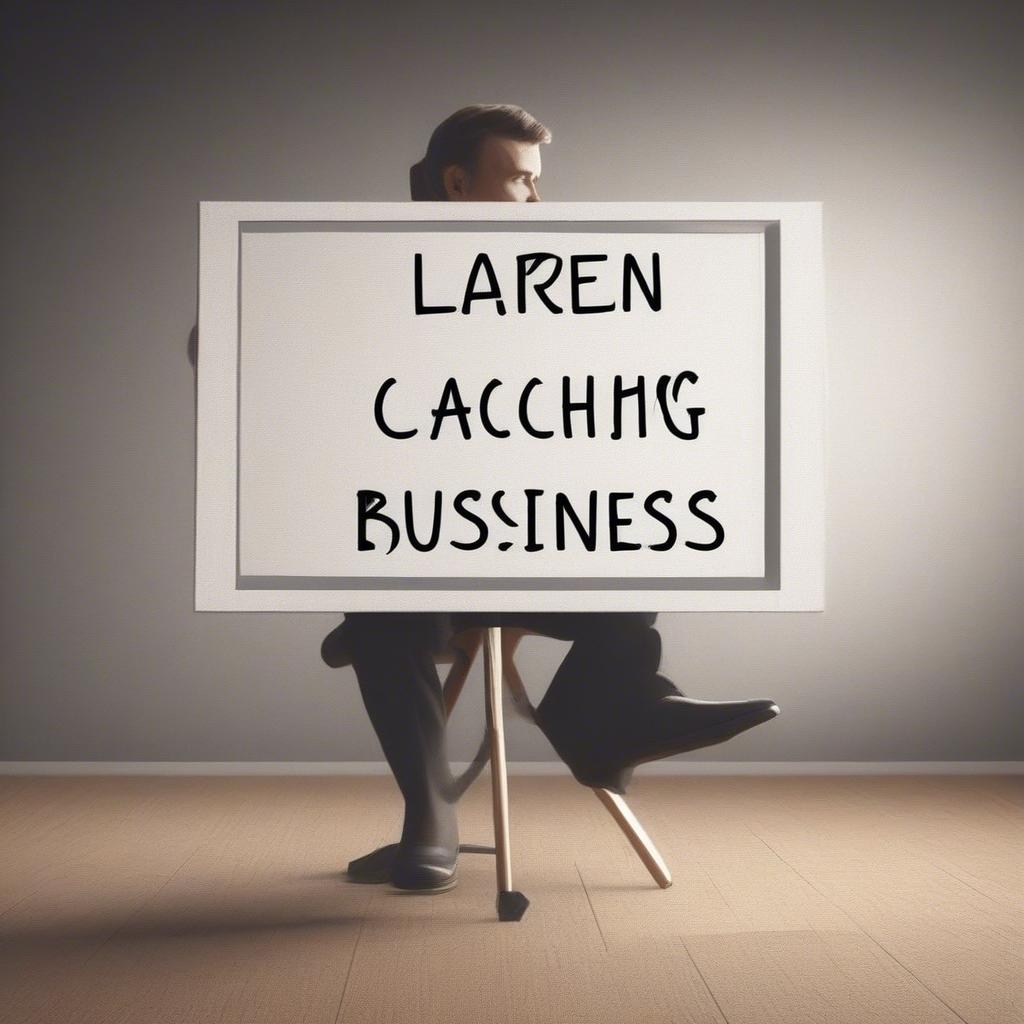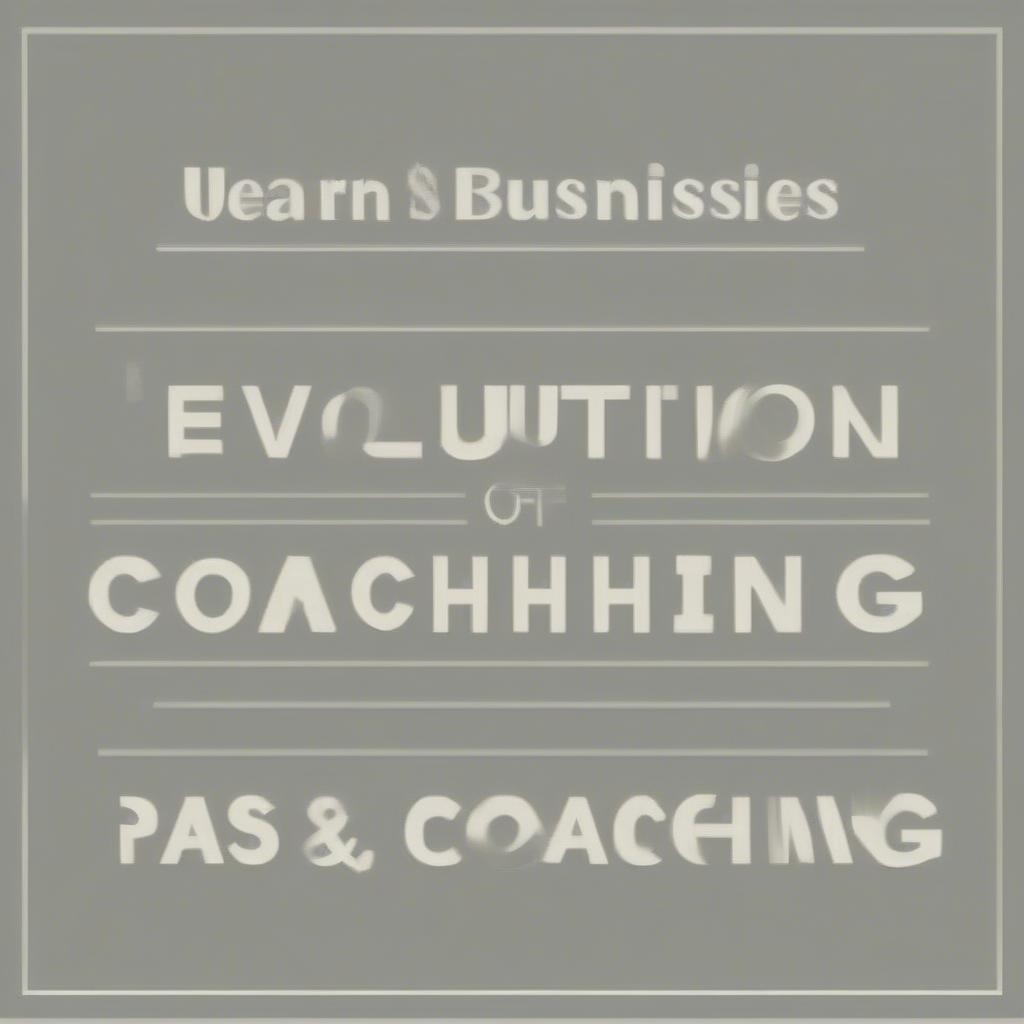
So, you’ve got the passion, the skills, and the drive to become a successful coach. You’re ready to empower others, guide them towards their goals, and build a fulfilling career. That’s fantastic! But before you dive headfirst into the world of coaching, there’s a crucial step many budding entrepreneurs overlook: legally structuring your coaching business.
Ignoring this can lead to a world of headaches down the line, from potential legal liabilities to tax nightmares. Don’t worry, though – it’s not as scary as it sounds. This guide will walk you through the essential steps to legally setup your coaching practice with confidence. We’ll explore everything you need to know about choosing the right business structure, and provide legal tips to ensure you’re operating smoothly and securely.
Why Does Legal Structure Matter for Coaches?
Before we jump into the “how,” let’s briefly touch on the “why.” Why does it matter how you structure your coaching business? Well, several reasons:
- Liability Protection: Choosing the right structure can shield your personal assets from business debts and lawsuits. This is absolutely crucial. If someone sues your business, and you don’t have the right structure, they could come after your house, your car, and everything else you own.
- Tax Implications: Different business structures are taxed differently. Choosing the right one can help you minimize your tax burden and maximize your profit. Nobody wants to pay more taxes than they absolutely have to.
- Credibility & Professionalism: Having a clearly defined business structure portrays you as a professional and trustworthy coach. Clients are more likely to work with you when they know you’re taking your business seriously.
- Future Growth: A solid legal foundation allows you to scale your business more easily. If you’re thinking about hiring employees, taking on investors, or expanding your offerings, you’ll need a proper structure in place.
Decoding Business Structures: Which One is Right for You?
Let’s get down to brass tacks. Here are the most common business structures you might consider as a coach:
1. Sole Proprietorship: The Simplest Path (But is it the Safest?)
- What it is: A sole proprietorship is the simplest form of business structure. It’s essentially an extension of you as an individual. You and your business are considered one and the same, legally speaking.
- How it works: You don’t need to file any formal paperwork to start a sole proprietorship. Just start offering coaching services, and you’re officially in business. You’ll report your business income on your personal income tax return.
- Pros:
- Easy and Inexpensive: Simple setup with minimal paperwork.
- Full Control: You make all the decisions.
- Pass-Through Taxation: Business income is taxed as personal income, potentially simplifying your taxes.
- Cons:
- Unlimited Personal Liability: This is the BIG one. You are personally liable for all business debts and obligations.
- Difficulty Raising Capital: Investors are hesitant to invest in sole proprietorships.
- Limited Credibility: Might not appear as professional as other structures.
Who is it good for? New coaches just starting out and not expecting significant liability, but with caution as you grow, this may not be the best.
2. Partnership: Team Up and Take on the World (Carefully!)
- What it is: A partnership involves two or more individuals who agree to share in the profits or losses of a business.
- How it works: You’ll need a partnership agreement that clearly outlines each partner’s responsibilities, profit-sharing arrangements, and what happens if a partner leaves.
- Types of Partnerships:
- General Partnership: All partners share in the management and liability of the business.
- Limited Partnership: One or more partners are general partners with liability, while others are limited partners with limited liability and limited control.
- Limited Liability Partnership (LLP): Provides some liability protection for all partners, though rules vary by state.
- Pros:
- Shared Resources and Expertise: Combining skills and capital with partners can be powerful.
- Easy to Setup (relatively): Simpler than corporations, though still needs an agreement.
- Pass-Through Taxation: Similar to sole proprietorships, profits pass through to personal income.
- Cons:
- Potential for Conflict: Disagreements among partners can disrupt the business.
- Unlimited Liability (in General Partnerships): Like sole proprietorship, all general partners are personally liable.
- Complexity: Managing partnerships can be more complex than running a sole proprietorship.
Who is it good for? Coaches who are partnering with others and want to share responsibility, but with a well-structured agreement.
3. Limited Liability Company (LLC): A Popular Choice for a Reason
- What it is: An LLC is a popular structure that combines the simplicity of a sole proprietorship or partnership with some of the liability protection of a corporation.
- How it works: You’ll need to file formation documents (articles of organization) with your state. It’s relatively straightforward, but you’ll need to pick a name, appoint a registered agent, and create an operating agreement.
- Pros:
- Limited Liability: Your personal assets are protected from business debts and lawsuits.
- Pass-Through Taxation: Like sole proprietorships and partnerships, profits are taxed as personal income.
- Flexibility: LLCs offer flexibility in how they are managed and how profits are distributed.
- Credibility: An LLC is often seen as more professional than a sole proprietorship.
- Cons:
- More Complex Setup: Involves more paperwork and costs than a sole proprietorship.
- State-Specific Regulations: Rules and fees vary by state, which can add complexity.
Who is it good for? Most coaches will find an LLC offers the best balance of simplicity, flexibility, and liability protection. It’s a solid choice for most coaching businesses.
4. S-Corporation & C-Corporation: Stepping into the Corporate Realm
- What they are: S-Corps and C-Corps are more complex business structures, and are treated as separate legal entities from their owners.
- How they work: They involve more rigorous paperwork, record-keeping, and tax requirements. They are governed by corporate laws and require a board of directors and corporate meetings.
- S-Corp: Allows profits and losses to be passed through to the owners’ personal income tax returns, avoiding double taxation.
- C-Corp: Is taxed separately from its owners, which can result in “double taxation” (at the corporate level and again at the individual level).
- Pros:
- Strongest Liability Protection: Owners are almost always protected from business debts and lawsuits.
- Potential Tax Advantages (depending on your situation): S-Corps can provide tax advantages for some business owners, and C-Corps can raise capital more easily.
- Increased Credibility: Corporations are often seen as the most professional business structure.
- Cons:
- More Complex and Expensive Setup: Significant paperwork, fees, and ongoing administrative tasks.
- More Regulation: Subject to stricter compliance and governance requirements.
- Double Taxation (C-Corp): Profits are taxed at both the corporate level and again when distributed to shareholders.
Who are they good for? Rarely the best option for small coaching businesses, but possibly a good choice for very large or highly complex coaching practices with multiple employees or shareholders, or plans to go public.
A Quick Cheat Sheet for Deciding Your Structure
| Structure | Liability | Complexity | Tax Implications | Best For |
|---|---|---|---|---|
| Sole Proprietorship | Unlimited | Very Low | Personal Income | New coaches, low-risk business |
| Partnership | Unlimited (Gen.) | Low | Personal Income | Coaches with partners, sharing responsibility |
| LLC | Limited | Medium | Personal Income | Most coaches, best blend of ease and protection |
| S-Corporation | Limited | High | Pass-Through (Pot.) | Large, complex coaching businesses |
| C-Corporation | Limited | High | Corporate and Indv. | Large companies planning for IPO |
Important Note: Laws change, and state laws vary dramatically, so consult with a qualified attorney or accountant to get tailored advice for your specific situation.
Essential Legal Tips for Your Coaching Business: Beyond the Structure
Choosing your business structure is just the first step. Here are some other crucial legal tips to keep in mind:
1. Ironclad Client Contracts: Setting Clear Expectations
- Why they matter: Client contracts protect both you and your client by clearly defining your services, payment terms, cancellation policies, confidentiality, intellectual property, and liability limitations.
- What to Include:
- Clear description of services provided (type of coaching, frequency, duration).
- Payment schedules and methods.
- Cancellation and refund policies.
- Confidentiality clauses.
- Intellectual property ownership.
- Disclaimers (you are not providing therapy or medical advice).
- Liability limitations.
- Terms of Termination
- Actionable Step: Invest in a well-written template. You can find these online or have an attorney draft one specific for your coaching specialty. Do not copy a random one from the internet – that will bring you more issues than any benefit.
2. Protect Your Intellectual Property: Your Unique Voice
- Why it matters: Your coaching materials, exercises, and methods are your intellectual property. Protecting it ensures you retain control and prevent others from profiting from your hard work.
- How to Protect it:
- Copyright: Use copyright notices on all original materials.
- Trademark: Consider trademarking your business name, logo, or slogans.
- Non-Disclosure Agreements (NDAs): Use NDAs for any collaborators or contractors.
- Actionable Step: Begin using a copyright notice on any original content. Register trademarks if needed.
3. Privacy & Data Protection: Treat Data Like Gold
- Why it matters: You’ll be collecting personal information from your clients (names, contact info, etc.). You have a legal and ethical obligation to protect this information.
- How to Protect It:
- Privacy Policies: Create a clear privacy policy on your website outlining how you collect, store, and use data.
- Secure Storage: Store data securely, ideally using encrypted cloud-based tools.
- Data Protection Laws: Be aware of relevant laws like GDPR (if you have European clients) and other state-specific laws.
- Actionable Step: Review and update your privacy policy regularly. Invest in secure storage options.
4. Business Insurance: Protecting Against the Unexpected
- Why it matters: Business insurance protects you from financial losses due to accidents, lawsuits, or other unforeseen events.
- Types of Insurance to Consider:
- General Liability Insurance: Covers third-party claims for bodily injury or property damage.
- Professional Liability Insurance (Errors & Omissions Insurance): Protects you against claims of negligence or professional mistakes.
- Business Property Insurance: If you have a physical office, covers loss or damage to your equipment and property.
- Actionable Step: Get a quote from several insurance providers.
5. Business Licenses and Permits: Getting the Green Light
- Why it matters: Depending on your location, you may need a business license or permit to operate legally.
- How to find out: Contact your local city and county governments, or use a service to lookup applicable business licenses.
- Actionable Step: Check with the local government for requirements before offering coaching services.
Learn Business: Your Partner in Legal Compliance
Navigating the legal landscape for your coaching business can feel overwhelming. That’s where Learn Business comes in. We understand the challenges that coaches face, and we’re here to help you succeed.
How Learn Business Supports Coaches:
- Tailored Templates: We offer a library of customizable templates, including client contracts, privacy policies, and more, designed specifically for coaches. These templates save you time and money.
- Expert Guidance: Get access to resources and information written by legal professionals to assist with the complex world of business legals.
- Simple Language: We translate legal jargon into easy-to-understand language so you can make informed decisions for your business without the stress.
- Peace of Mind: With Learn Business, you can operate your coaching practice with confidence, knowing you’re legally compliant and protected.
We help you avoid the common legal pitfalls that derail many coaches by providing the practical tools and support you need. We cover everything from contracts to setting up your LLC to data privacy, and we do it in a way that is easy to digest and easy to implement.
Key Takeaways: Your Roadmap to Legal Success
Setting up your coaching business legally is not a one-time task but rather a continuous effort. Here’s a recap of the steps:
- Choose the right business structure: Consider the pros and cons of each option (Sole Proprietorship, Partnership, LLC, S-Corp, C-Corp) and choose the best fit for your needs. An LLC is usually a safe bet for most small coaching businesses.
- Use ironclad contracts: Don’t operate without written agreements that protect both you and your clients. Start with a quality template and customize it for your needs.
- Protect your intellectual property: Copyright your original material and trademark your business name and logo.
- Prioritize privacy and data protection: Comply with data protection laws and create a privacy policy.
- Secure appropriate business insurance: Don’t skip general and professional liability insurance.
- Obtain necessary licenses and permits: Verify if your business needs them in your locality.
By taking these steps, you’ll be well on your way to building a thriving and legally sound coaching business. Remember, having a solid legal foundation not only protects your business, but also allows you to focus on what you do best: empowering your clients. Don’t let the legal aspects of business ownership intimidate you. Approach the journey methodically and seek advice from resources such as Learn Business to navigate the legal aspects of your business. Now go out there and make a positive impact on the world!



Leave a Reply